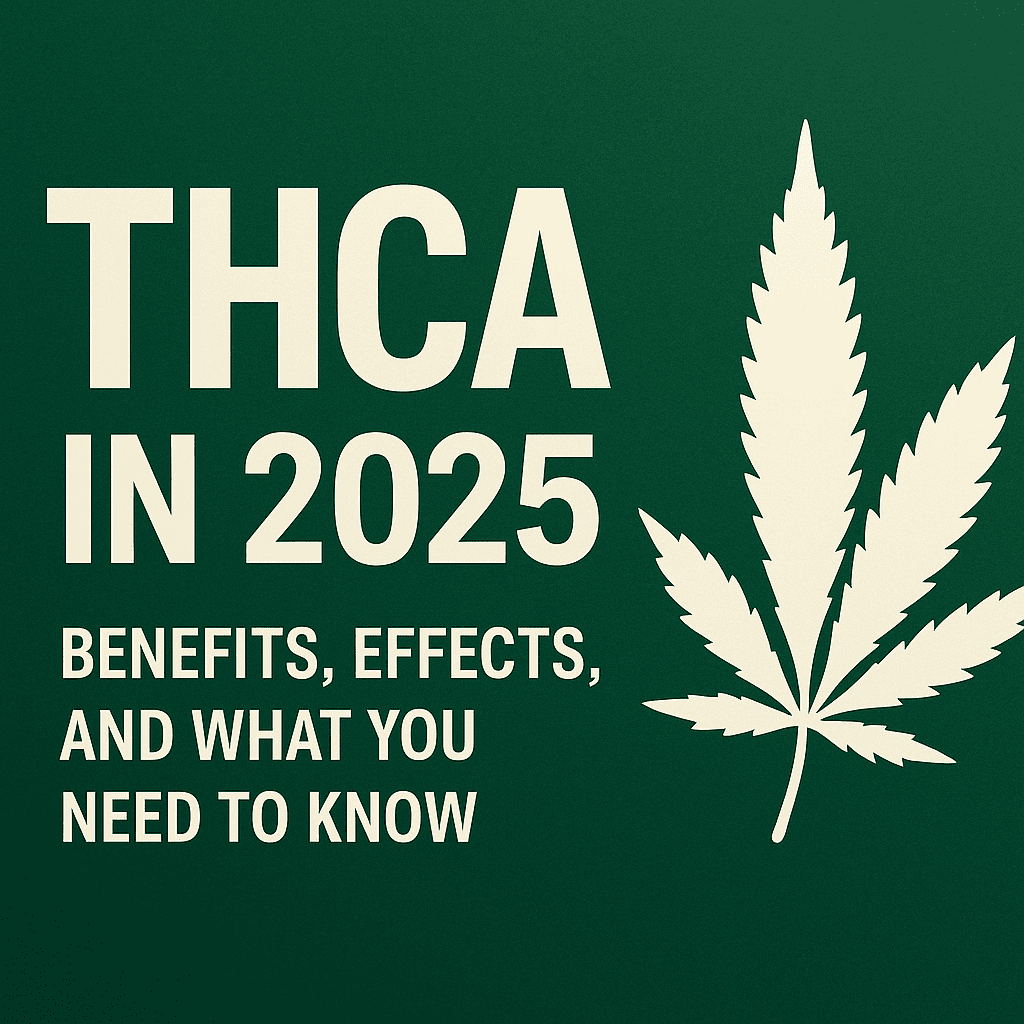THCA in 2025: Benefits, Effects, and What You Need to Know
The cannabis industry continues to evolve rapidly, and THCA (tetrahydrocannabinolic acid) has emerged as one of the most talked-about cannabinoids in 2025. Once overshadowed by THC and CBD, this non-psychoactive cannabinoid is now gaining recognition for its potential health benefits and unique role in the cannabis plant’s lifecycle.
Whether you’re a seasoned cannabis enthusiast, a wellness seeker, or simply curious about cannabinoids, understanding THCA can help you make more informed choices. Let’s break down what THCA is, its potential benefits, and why it’s generating so much buzz this year.
1. What Is THCA?
THCA, or tetrahydrocannabinolic acid, is a naturally occurring cannabinoid found in raw and freshly harvested cannabis. Unlike THC (tetrahydrocannabinol), THCA does not produce intoxicating effects. Instead, it exists as the chemical precursor to THC.
When cannabis is heated—through smoking, vaping, baking, or even prolonged sun exposure—THCA undergoes decarboxylation, transforming into THC. This conversion is why raw cannabis flower or THCA concentrates can be consumed without causing a high unless heat is applied.
2. Potential Anti-Inflammatory Benefits
Emerging research suggests that THCA may have anti-inflammatory properties, making it a candidate for natural wellness approaches aimed at reducing inflammation-related discomfort. While scientific evidence is still developing, early studies and anecdotal reports indicate promise in areas like joint stiffness and muscle soreness.
3. Neuroprotective Potential
Neurological wellness is a growing area of interest, and some researchers are exploring THCA’s potential as a neuroprotective agent. While human studies are limited, preliminary findings suggest that THCA may help protect nerve cells from certain types of damage—opening doors for further investigation in neurodegenerative conditions.
4. Possible Natural Antiemetic
Nausea and vomiting can significantly impact quality of life, especially for those undergoing certain medical treatments. THCA is currently being studied for its antiemetic (anti-nausea) potential, which could make it a natural alternative for managing these symptoms without intoxication.
5. THCA and the Entourage Effect
Cannabis compounds often work better together than alone—a phenomenon known as the entourage effect. THCA may contribute to this synergy by interacting with other cannabinoids like CBD, CBN, CBC, and cannabis terpenes, potentially enhancing overall effects and therapeutic value.
A Word of Caution
While THCA is non-psychoactive and generally well-tolerated, research is still in its early stages. Anyone considering THCA for wellness should consult with a medical professional—especially those taking prescription medications or managing chronic health conditions.
THCA in 2025: The Takeaway
THCA is no longer just a “pre-THC” cannabinoid—it’s a promising compound in its own right. With potential benefits ranging from anti-inflammatory and neuroprotective effects to a role in natural nausea relief, THCA is worth watching as cannabis research continues to expand.
If you want to explore THCA products, such as THCA flower, THCA pre-rolls, or THCA concentrates, check out our shop. Stay tuned—we’ll keep updating this guide as new studies and insights emerge.
For more cannabis insights, see our Endocannabinoid System Guide and Shop Our Full Collection.

